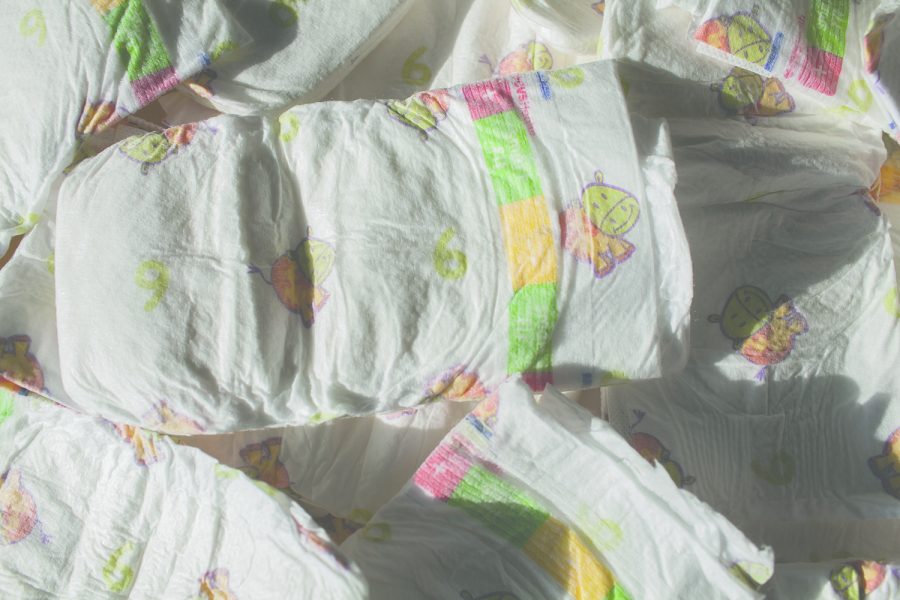CommUnity holds diaper drive
Rural, low-income Americans with transportation barriers find it difficult to buy enough diapers to get them through the month, experts say.
April 22, 2019
CommUnity Crisis Services, formerly known as the Johnson County Crisis Center, is holding a diaper drive throughout the month of April.
Liz Orton, the communications and development manager for CommUnity, the organization receives approximately 900 diaper requests per month from families who use the Food Bank or Mobile Food Pantry.
However, the center is only able to supply 12 diapers per week for each child when it has diapers in stock —that, she said, is a challenge.
“While we can buy food in bulk at deeply discounted prices, we’re unable to do so with diapers,” Orton said in an email to The Daily Iowan. “We rely on donations from the community to keep diapers on our shelves.”
According to CommUnity, it would cost $580 per week to provide adequate diapers to the clients who request them.
Infants can require up to 12 diapers per day, according to the National Diaper Bank Network, a nonprofit that aims to connect families in need with the supplies they require. Orton said that Food Bank families often share clean diapers with their friends and neighbors.
Families in lower-income areas and “food deserts” have limited options when it comes to purchasing diapers, she said, often forcing them to rely on expensive name-brand diapers sold in small quantities at gas stations. These high-cost options further perpetuate the cycle of poverty.
RELATED: Crisis Center collects donations for toilet paper drive
“Lacking access to clean diapers not only affects the child’s physical health, it can also affect the parents’ job status,” Orton said. “Child-care centers require that you have at least one day’s worth of diapers supplied for your child, or they could refuse service, resulting in the parent missing work to care for the child.”
According to the National Diaper Bank Network, 1-in-3 families struggle with diaper need.
Currently, government safety-net programs do not recognize diapers as a basic need and are classified under SNAP (formerly food stamps) alongside cigarettes and alcohol as disallowed purchases.
Senate File 205, a bipartisan bill introduced by state Sens. Zach Wahls, Randy Feenstra, and Roby Smith aims to provide a sales-tax exemption to food banks purchasing personal hygiene items, such as tampons and diapers.
On the national level, Rep. Barbara Lee, D-Calif., introduced a bill, the End Diaper Need Act of 2019, in the House in March that would allocate funds to programs that assist low-income families in obtaining diapers.
RELATED: Crisis Center renames to ‘CommUnity’ in order to showcase its expanded services
Troy Moore, the chief of external affairs for the National Diaper Bank Network, said that while the bill has garnered support among Democrats, with 32 endorsements, it needs bipartisan support.
“We certainly believe that diaper need is a nonpartisan issue,” Moore said. “We describe our network as a big tent.”
Moore said that those wishing to assist diaper and food banks can donate money, diapers, and their time.
“In Iowa, where you have a large rural population, that distance between towns is often quite great, and poverty is often hidden in rural areas,”Moore said. “Gas for a car can be a real obstacle to get to a big-box store to buy diapers.”
Erin Langdon, the chief development officer at Eastern Iowa Health Center, said diapers at bulk stores can cost up to $80 a month — the cost of diapers at small convenience stores is much higher.
“One of the things that we’ve seen is [diapers are] an essential need for every child, but there’s no subsidy or government-support programs that allow for the purchase of diapers,” she said. “Most licensed day cares require a day’s worth of disposable diapers, so diaper need ties into the cycle of poverty.”






